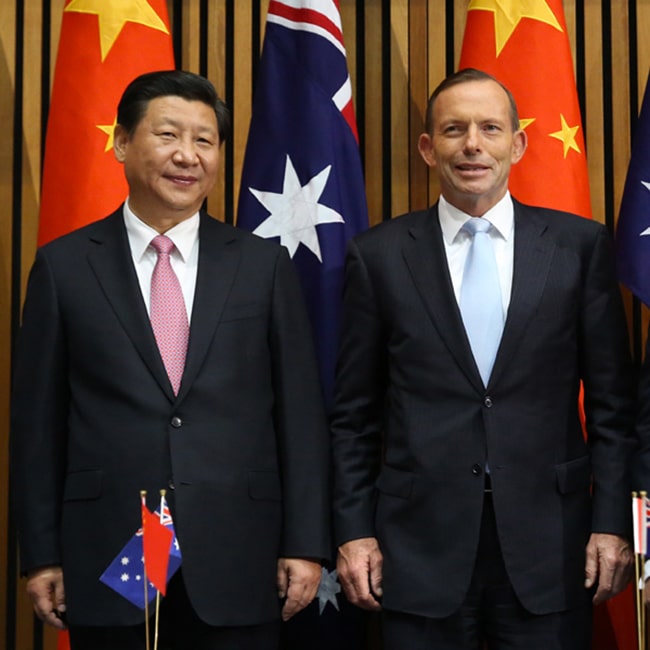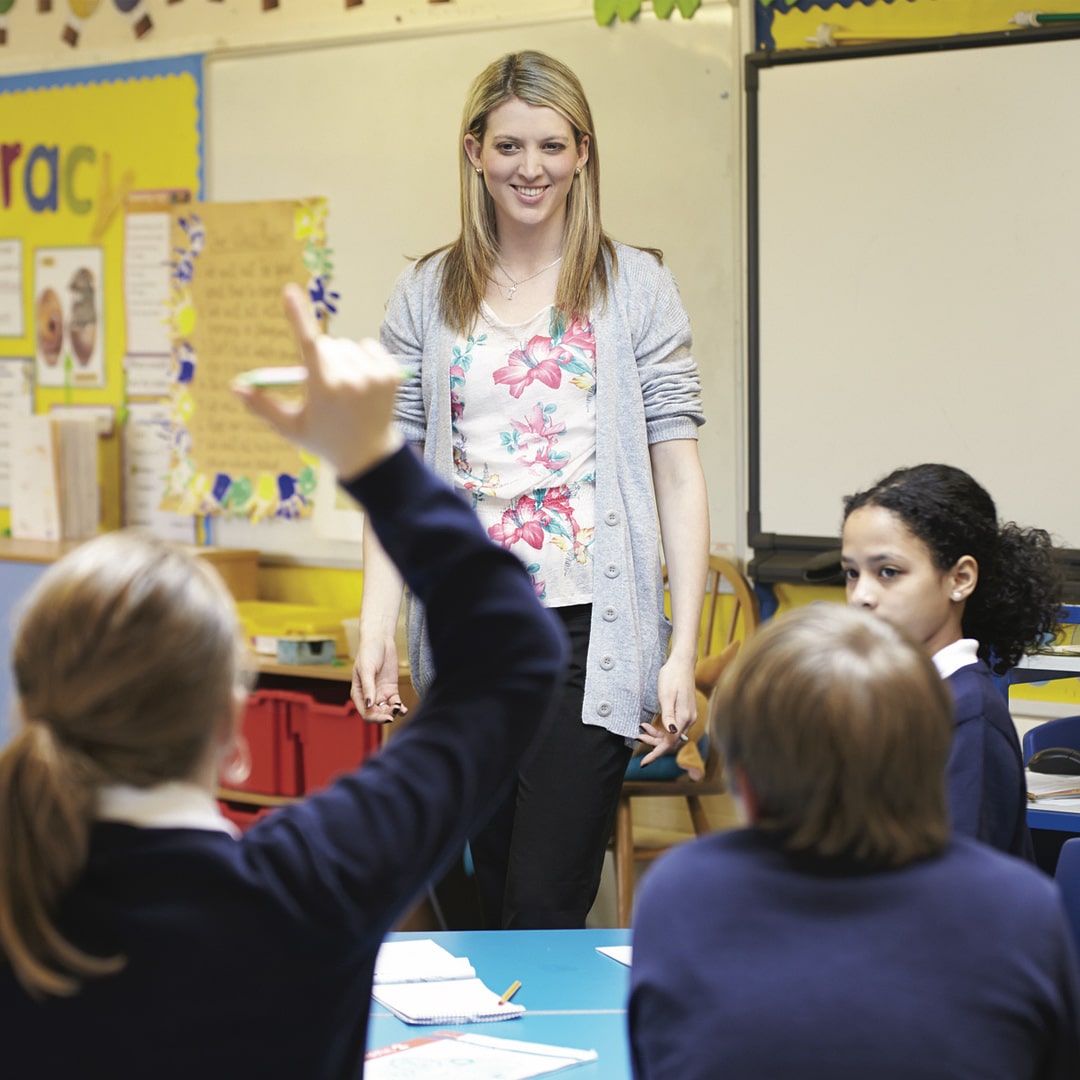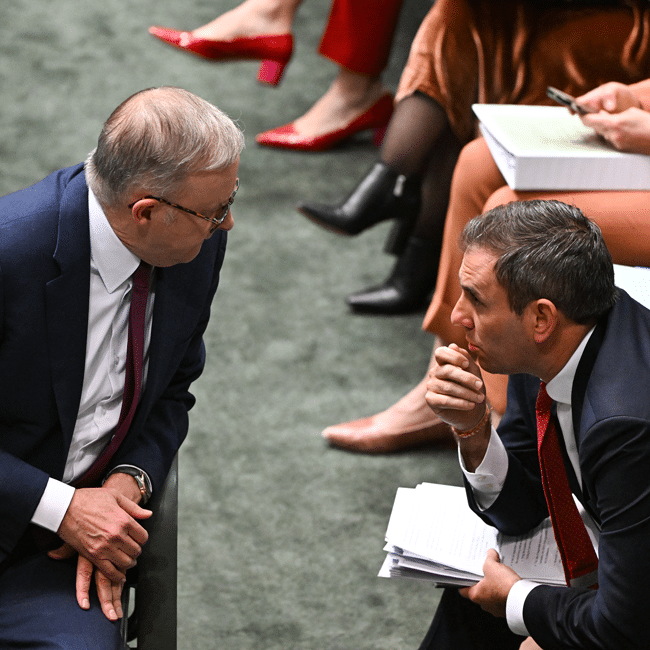Moving on from the pandemic means letting go

Moving on from the pandemic means letting go
Opinion + AnalysisBusiness + LeadershipHealth + WellbeingRelationships
BY Cris Parker The Ethics Centre 4 MAY 2020
Emerging from the turbulence of COVID-19, we have the opportunity to escape the hold of our past and use moral imagination to explore a better future.
After months of living through disruption, old work habits and perceptions may no longer fit the ‘new normal’, says Michael Baur, Associate Professor in the Philosophy Department at Fordham University and an Adjunct Professor at Fordham Law School.
“There’s a very positive side to this, because it makes us realise that the seemingly obvious, natural way of operating is not so obvious anymore.” says Baur.
“It does afford us the ability to think a little bit more carefully about what we’re doing.”
A simple example may be that, after mastering virtual meetings, we realise that the regular face-to-face interstate meetings we thought to be essential are not, in fact, a necessary part of doing business. Instead of asking ‘can we do this online?’ we might now ask, ‘should we do this online, is there a good reason to do it in person?’
“It’s liberating, potentially, to be able to be thrown back and see that the seemingly natural is really not so natural and obvious after all,” says Baur.
Aspects of life previously unquestioned, such as our choices of where to live, send our kids to school or even the jobs we do, may be cast in a different light.
Speaking with Bob McCarthy, an Irish colleague, he spoke of the experience of the ‘Celtic Tigers’ during ten-year-plus period of economic growth prior to 2008. “Ireland had never experienced anything like it and our economy became the envy of the world. Of course, we lived in accordance with our new wealth and fame – two houses each, BMWs, ski holidays and buying chalets in Morzine”, says McCarthy.
Many rationalised their good fortune – ‘we’ve had it tough for so long we deserve a little luxury.’ So, when the Global Financial Crisis (GFC) crash came, it came hard. There was a 60% average fall in property prices, high unemployment, many family tragedies, house repossessions and years of debt to repay.
Bob said that the experience of crisis changed attitudes and behaviours, “Now, those of us who have been through this look at life, business, money, relationships, values, ethics through a different filter than before”.
He describes the experience of having benefitted from the pain. What had once seemed important during the times of excess are no longer important. What didn’t matter then, matters to him now. “Don’t get me wrong – not everything has changed. But for most the filter we use has changed”.
Baur says that, with the experience of COVID-19, we now have a similar opportunity to reset our aspirations, “When we were riding easy, just several weeks ago, we were in a state of deception.” He recognises that the pandemic has caused major economic shocks – perhaps even more severe than those caused by the GFC, “And now we can regroup. That seems to me a more positive, healthy way of thinking of it – that all of this wealth and expectation was not really ours to have to begin with.”
Bigger is not always better
The aftermath of the pandemic presents a good time to reassess our attitude to growth. The fact that almost all sectors of business have suffered means that there is a collective opportunity to slow down and reassess whether the purpose of business is to make more money for money’s sake, or to provide for human need.
Business is now attending to issues that were always there to be addressed – but remained largely ‘unseen’. By presenting itself as a ‘common enemy’, COVID-19 has caused us all to look up at the same time and respond to a suite of collective problems.
In many cases, our response has been an expression of human goodness, compassion and altruism. ‘Them’ has become ‘us’.
For example, Accor hotels, is opening up unused accommodation to support vulnerable people. Simon McGrath, Accor’s CEO, says, “Our doors are open,” said Accor’s McGrath “We have accommodation assets that can help people in times of need, and while the industry’s been devastated commercially, it doesn’t mean we can’t help.”
In a similar vein, UBER has partnered with the Women’s Services Network to provide 3,000 free rides to support those needing safe travel to or from shelters and domestic violence support services.
Australia was relatively unscathed by the GFC of 2008 and did not experience the large economic downturn felt elsewhere on the globe. Australia has also managed to flatten the curve and “none have been more successful than Australia and New Zealand at containing the coronavirus,” said Jonathan Rothwell, Gallup’s principal economist.
This is thanks to our strong public health system and our comprehensive testing regime, to the tracing of carriers and our strict self-isolation and physical distancing laws. We were also lucky that our geographic isolation bought us an extra 10 precious days to prepare.
However, Australia has not and will not escape the economic consequences of the pandemic – and our response to the threat it poses. So, how will we shape up when the challenge is an economic recession as opposed to a medical emergency? Will the good will and sense of common endeavour persist during the next phase of struggle? More interestingly still, will the sense of mutual obligation survive a return to posterity? Or will we resume our ‘old ways’?
Baur says an argument could be made that business and society in general did not make the most of the lessons to be learned from the GFC, more than a decade ago. Ireland’s Bob McCarthy, is of the same opinion, “We may be having an opportunity that would have been a lost opportunity from that time,” he says.
“What might be seen as a loss of opportunity, a loss of growth, in one limited respect, is really a darn good thing for everybody,” Baur says.
Echoing the same sentiment, Mike Bennetts CEO of Z Energy in New Zealand told audiences at the Trans – Tasman Business Circle that this virus has accelerated us into the future by 5 years, so “let’s make the most of it”. Our instinct is to seek comfort and confidence in the known which will mean going back to the way it was.
The challenge, now, is not only to create a new future but a better future. For that to happen we need to unleash a better version of ourselves.
You can contact The Ethics Centre about any of the issues discussed in this article. We offer free counselling for individuals via Ethi-call; professional fee-for-service consulting, leadership and development services; and as a non-profit charity we rely heavily on donations to continue our work, which can be made via our website. Thank you.
Ethics in your inbox.
Get the latest inspiration, intelligence, events & more.
By signing up you agree to our privacy policy
You might be interested in…
Opinion + Analysis
Business + Leadership, Relationships
The twin foundations of leadership
Big thinker
Politics + Human Rights, Relationships
Big Thinker: Mary Wollstonecraft
Opinion + Analysis
Relationships, Society + Culture
Those regular folk are the real sickos: The Bachelor, sex and love
Explainer
Relationships
Ethics Explainer: Ethical judgement and moral intuition
BY Cris Parker
Cris Parker is Head of The Ethics Alliance and a Director of the Banking and Finance Oath.
BY The Ethics Centre
The Ethics Centre is a not-for-profit organisation developing innovative programs, services and experiences, designed to bring ethics to the centre of professional and personal life.
Leading ethically in a crisis

Leading ethically in a crisis
Opinion + AnalysisBusiness + Leadership
BY Simon Longstaff The Ethics Centre 4 MAY 2020
It is difficult to excel in the art of leadership at any time – let alone in the midst of a crisis. Yet, this is precisely when good leadership is at a premium.
Right now, we must ask: what is ‘good’ leadership and how should leaders respond to the demands placed upon them during periods of extraordinary ethical complexity?
In attempting to answer these questions, I am thrown back on my own experience of leadership – including at present. In that sense, this not a detached, objective account. Rather, it is a reflection on (and of) lived experience.
The first obligation of a leader is to see, and sense, the whole picture. This means being alive to the undercurrents of feeling and emotion flowing through the organisation, while simultaneously keeping a clear view of the evolving strategic landscape and being ‘present’ in the moment.
The good leader needs to ensure that no one affected by the crisis is either overlooked or marginalised. This is harder than it seems. When driven by the ‘lash of necessity’, it’s all too easy to favour some people because of their utility, while dismissing others as ‘dead weight’.
I have been struck by the number of times that people have said the current emergency requires them, albeit reluctantly, to be cold-hearted, brutal or even cruel. I realise that such comments do not reflect their personal inclination – but instead reflect their response to evident necessity. However, I think that ethical leaders have an obligation to challenge that tendency – not least by naming it for what it is.
This is not to say that issues of relative utility are unimportant. Nor is it the case that one should avoid difficult decisions – such as those that might lead to job losses. Rather, the leader’s job is to ensure that such decisions are not made on the basis of cold, dispassionate calculation. Instead, the leader has an obligation to ensure that the ethical weight of each decision is felt and the heft of the burden that falls from each decision is known.
The second requirement of ethical leaders is that they resist demands for a certainty they cannot or should not provide. This is easier said than done. There are some contexts in which the suspense of ‘not knowing’ can be thrilling; however, for most people operating under stress, confronting ‘the unknown’ reinforces a sense of powerlessness and is deeply unsettling.
Even so, ethical leaders should resist the temptation to offer people false certainty, no matter how much that might be desired. Instead, a good leader should be resolutely trustworthy by only claiming as ‘certain knowledge’ what is genuinely known. Otherwise, a leader’s integrity can be undermined by something as simple as a gap between what was asserted as fact and what is subsequently revealed to be true.
None of this is to suggest that people be denied glimmers of hope based on one’s best estimate. It is merely to counsel caution – especially when a delay can open up new possibilities. The recent and unexpected emergence of the Federal Government’s JobKeeper scheme is a good example.
Leading during a crisis requires an ability to foresee a future, preferred state and then ‘backcast’ to the present when making decisions. As noted above, in the course of a crisis, many decisions will be made under the ‘lash of necessity’.
In these circumstances, people will be driven to accept the harshest treatment as a ‘necessary evil’. However, a time will come when the crisis is relegated to the past and those who remain in an organisation will want to know what justified the sacrifice – especially that made by those who fell along the way.
Telling people that it was ‘necessary’ will not be enough. Instead, those who remain will require a positive justification that goes beyond ‘mere survival’. It is in the light of that positive justification that all of the preceding decisions need to be evaluated. So, leaders need to ask themselves, ‘is today’s decision going to foreclose on the future we hope to create’. In particular, will my present choice make my preferred future impossible? Will it delegitimise my future leadership?
Finally, leaders need to release themselves from the unrealistic expectation of ‘ethical perfection’. This is not to say that one should be careless in decision making. Rather, it is to recognise a fundamental truth of philosophy: that some ethical dilemmas are so perfectly balanced as to be, in principle, undecidable.
Yet, we must decide. The only reasonable standard to apply in such cases is that we are sincere in our judgement and competent in our capacity to make ethical decisions – a skill that can be learned and supported.
There are particular ethical challenges to be faced by leaders during times such as these. Critical decisions may have to be made alone. Not everything that could be said should be said. There are some options that need to be considered but not voiced – as they would cause unnecessary worry – only to remain dormant.
There are ‘gordian knots’ that may need to be cut rather than carefully unravelled over a period of time that is simply not available. There is the fact that the weaknesses in oneself (and others) will be revealed under pressure – and that unpleasant truths will need to be acknowledged and endured.
At times such as these, the things that sustain good leaders are an unshakeable sense of purpose and a solid core of personal integrity. One might protect others from the harshest of possibilities for as long as possible – but never oneself.
The Ethics Centre is a world leader in assessing cultural health and building the leadership capability to make good ethical decisions in complexity. To arrange a confidential conversation contact the team at consulting@ethics.org.au. Visit our consulting page to learn more.
Ethics in your inbox.
Get the latest inspiration, intelligence, events & more.
By signing up you agree to our privacy policy
You might be interested in…
Opinion + Analysis
Business + Leadership, Politics + Human Rights
Character and conflict: should Tony Abbott be advising the UK on trade? We asked some ethicists
Opinion + Analysis
Business + Leadership
Why we need land tax, explained by Monopoly
Opinion + Analysis
Business + Leadership
Is employee surveillance creepy or clever?
Opinion + Analysis
Business + Leadership, Relationships
Treating citizens as customers is a recipe for distrust
BY Simon Longstaff
After studying law in Sydney and teaching in Tasmania, Simon pursued postgraduate studies in philosophy as a Member of Magdalene College, Cambridge. In 1991, Simon commenced his work as the first Executive Director of The Ethics Centre. In 2013, he was made an officer of the Order of Australia (AO) for “distinguished service to the community through the promotion of ethical standards in governance and business, to improving corporate responsibility, and to philosophy.”
BY The Ethics Centre
The Ethics Centre is a not-for-profit organisation developing innovative programs, services and experiences, designed to bring ethics to the centre of professional and personal life.
Ask an ethicist: do teachers have the right to object to returning to school?

Ask an ethicist: do teachers have the right to object to returning to school?
Opinion + AnalysisPolitics + Human RightsRelationships
BY Simon Longstaff The Ethics Centre 4 MAY 2020
In recent weeks, there has been a particularly intense debate about whether or not students should return to the classroom.
This article was first published by Crikey, in their weekly Ask the Ethicist column featuring Dr Simon Longstaff.
Much of that debate has focused on the interests of the children and their families. However, there is a third stakeholder group – the nation’s teachers – who need to be considered. Part ‘essential worker’, part ‘political football’, they have been celebrated on one hand and condemned on the other. So, what are the ethical obligations of those who teach our children during COVID-19.
As a starting point, let’s agree that education is a significant ‘good’ and that children should not be deprived of its benefits unless there are compelling reasons for doing so. Compelling reasons would include the potential risk of infection due to school attendance.
At present, the balance of evidence is that the risk of children becoming infected is low and that they are unlikely to be transmitters of the disease to adults – especially in well-controlled environments. However, why take any risk – if viable alternatives are available?
Here, we should note that the education of children has not been suspended during the crisis. Instead, it has continued by other – ‘online’ – means. This has required a massive effort by the teaching profession to ‘recalibrate’ the learning environment to support distance learning.
We should also note that the ability to provide distance education distinguishes teachers from other essential workers who, of necessity, must provide a face-to-face service. For example, while some doctors can consult with patients using ‘telemedicine’, most health care workers need to be physically present (e.g. when administering a flu injection, or caring for a bed-ridden patient, etc.).
So, if distance learning achieves the same educational outcomes as classroom teaching, teachers would not seem to be under any moral obligation to return to the classroom. However, the Federal Government has recently cited reports suggesting that online learning produces ‘sub-optimal’ outcomes for students (unwelcome news for children living in remote communities and educated by the ‘school of the air’).
If this is true, then it would suggest two things. First that the government should be massively increasing its investment in education for children who have no option but to engage in distance education. Second, that teachers should be heading back into the classroom.
However, what of the teacher who lives with people for whom COVID-19 is a particular threat … the aged and infirm? In those cases, the choice is not just a matter of balancing a public duty as an educator against a preference for personal safety. Rather, the teacher is caught in an ethical dilemma of competing duties.
In such a case, I think it would be reasonable for a teacher to claim they have a conscientious objection to returning to the classroom – grounded in a refusal to be the potential cause of harm to a loved one – especially when the only certain protection for the loved one is that the teacher remain isolated.
You can contact The Ethics Centre about any of the issues discussed in this article. We offer free counselling for individuals via Ethi-call; professional fee-for-service consulting, leadership and development services; and as a non-profit charity we rely heavily on donations to continue our work, which can be made via our website. Thank you.
Ethics in your inbox.
Get the latest inspiration, intelligence, events & more.
By signing up you agree to our privacy policy
You might be interested in…
Opinion + Analysis
Politics + Human Rights, Business + Leadership
Political promises and the problem of ‘dirty hands’
Opinion + Analysis
Health + Wellbeing, Relationships
Banning euthanasia is an attack on human dignity
Opinion + Analysis
Politics + Human Rights
Enough and as good left: Aged care, intergenerational justice and the social contract
Opinion + Analysis
Relationships















